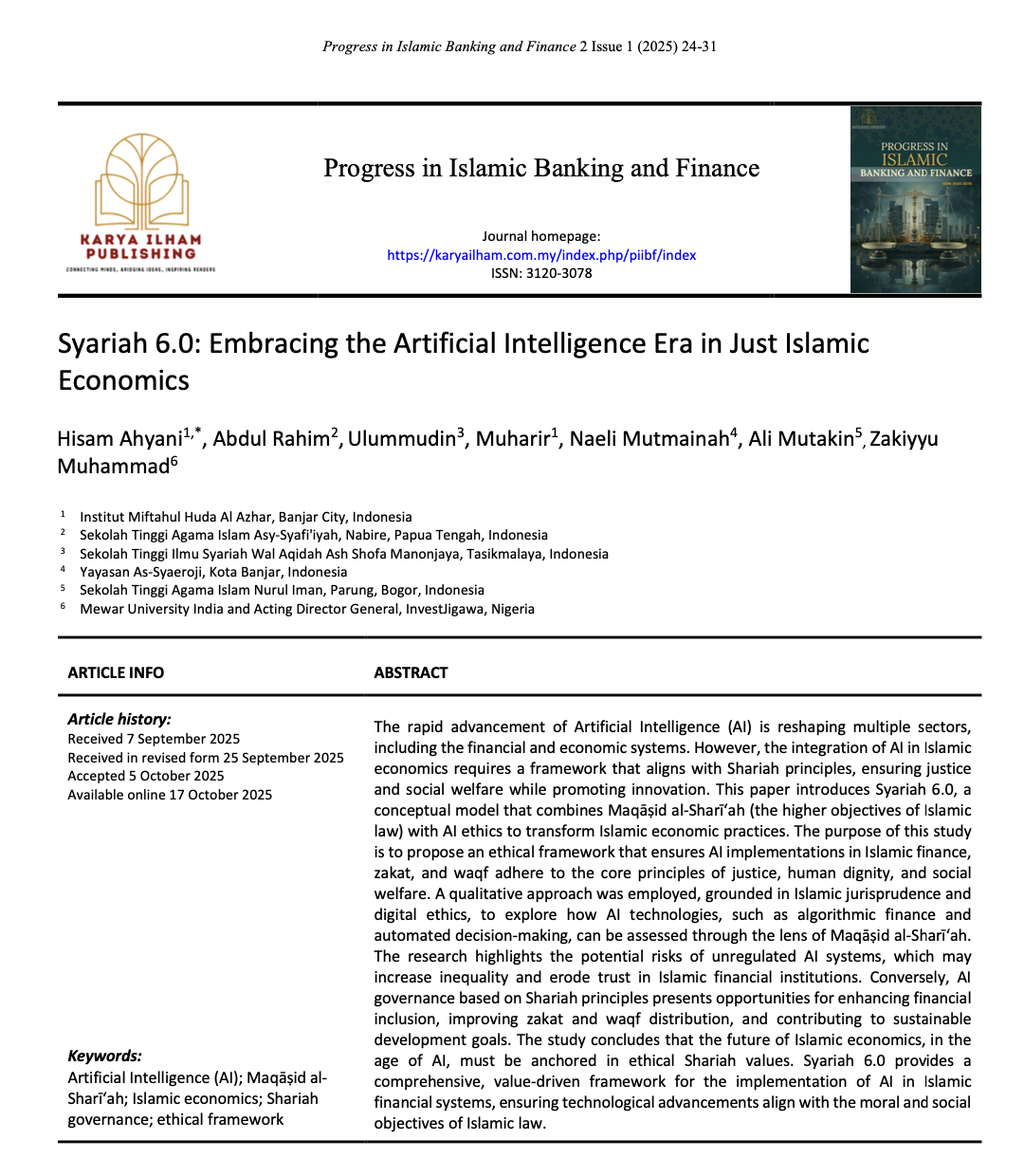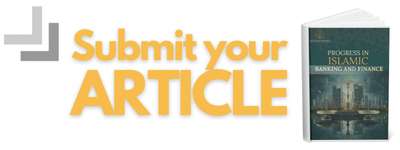Syariah 6.0: Embracing the Artificial Intelligence Era in Just Islamic Economics
Keywords:
Artificial Intelligence (AI), Maqāṣid al-Sharī‘ah, Islamic economics, Shariah governance, ethical frameworkAbstract
The rapid advancement of Artificial Intelligence (AI) is reshaping multiple sectors, including the financial and economic systems. However, the integration of AI in Islamic economics requires a framework that aligns with Shariah principles, ensuring justice and social welfare while promoting innovation. This paper introduces Syariah 6.0, a conceptual model that combines Maqāṣid al-Sharī‘ah (the higher objectives of Islamic law) with AI ethics to transform Islamic economic practices. The purpose of this study is to propose an ethical framework that ensures AI implementations in Islamic finance, zakat, and waqf adhere to the core principles of justice, human dignity, and social welfare. A qualitative approach was employed, grounded in Islamic jurisprudence and digital ethics, to explore how AI technologies, such as algorithmic finance and automated decision-making, can be assessed through the lens of Maqāṣid al-Sharī‘ah. The research highlights the potential risks of unregulated AI systems, which may increase inequality and erode trust in Islamic financial institutions. Conversely, AI governance based on Shariah principles presents opportunities for enhancing financial inclusion, improving zakat and waqf distribution, and contributing to sustainable development goals. The study concludes that the future of Islamic economics, in the age of AI, must be anchored in ethical Shariah values. Syariah 6.0 provides a comprehensive, value-driven framework for the implementation of AI in Islamic financial systems, ensuring technological advancements align with the moral and social objectives of Islamic law.






